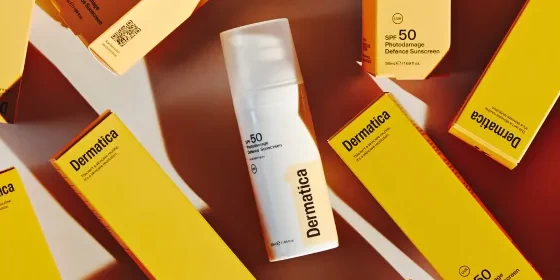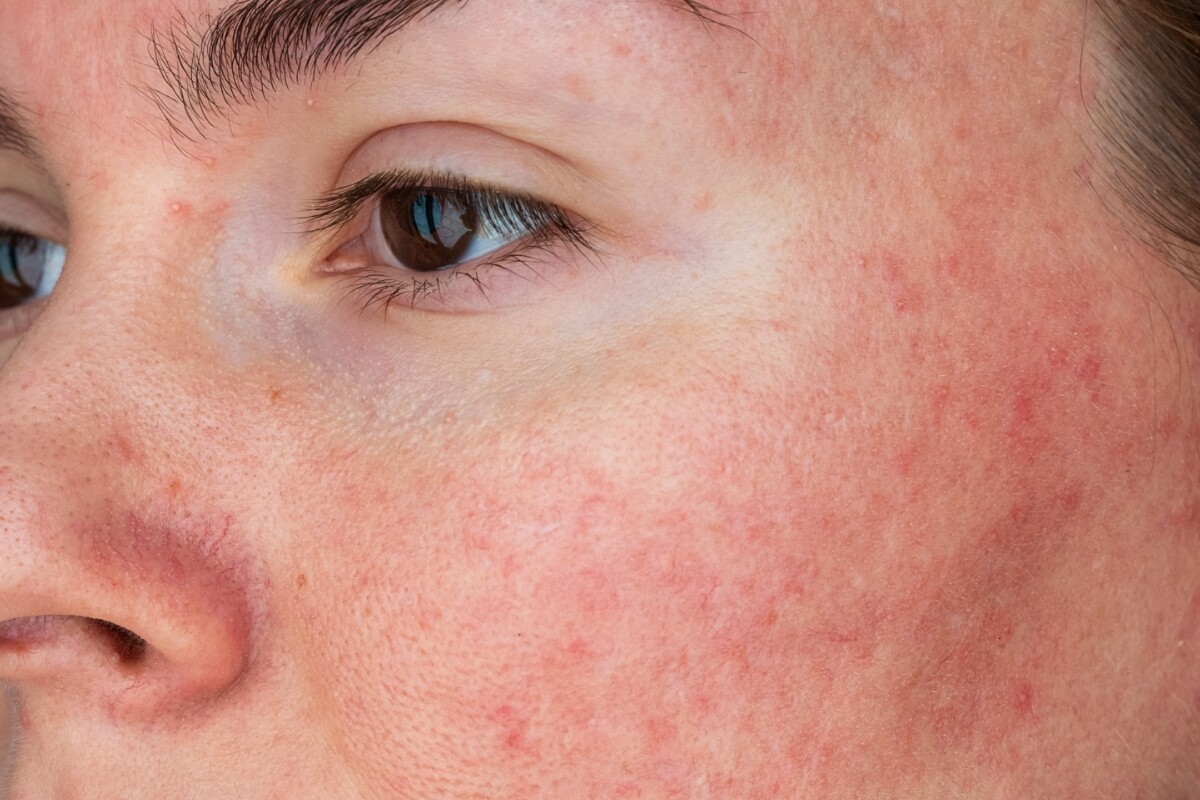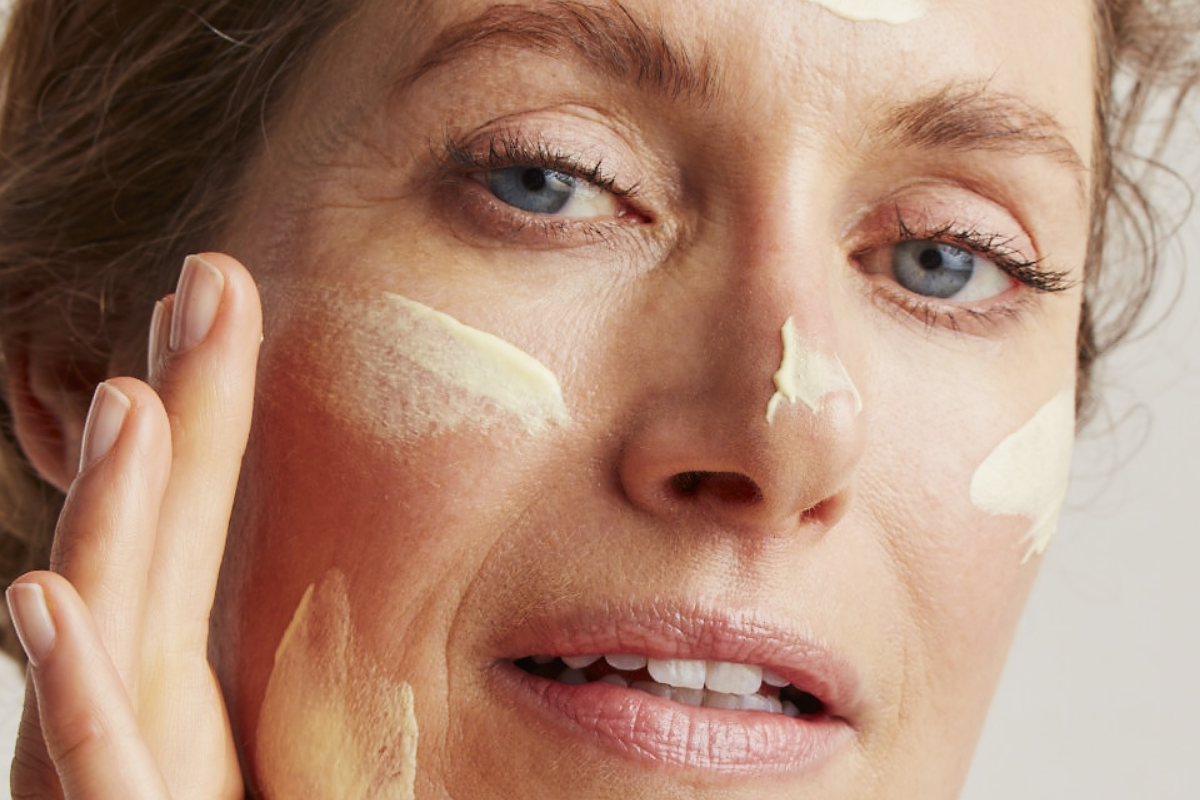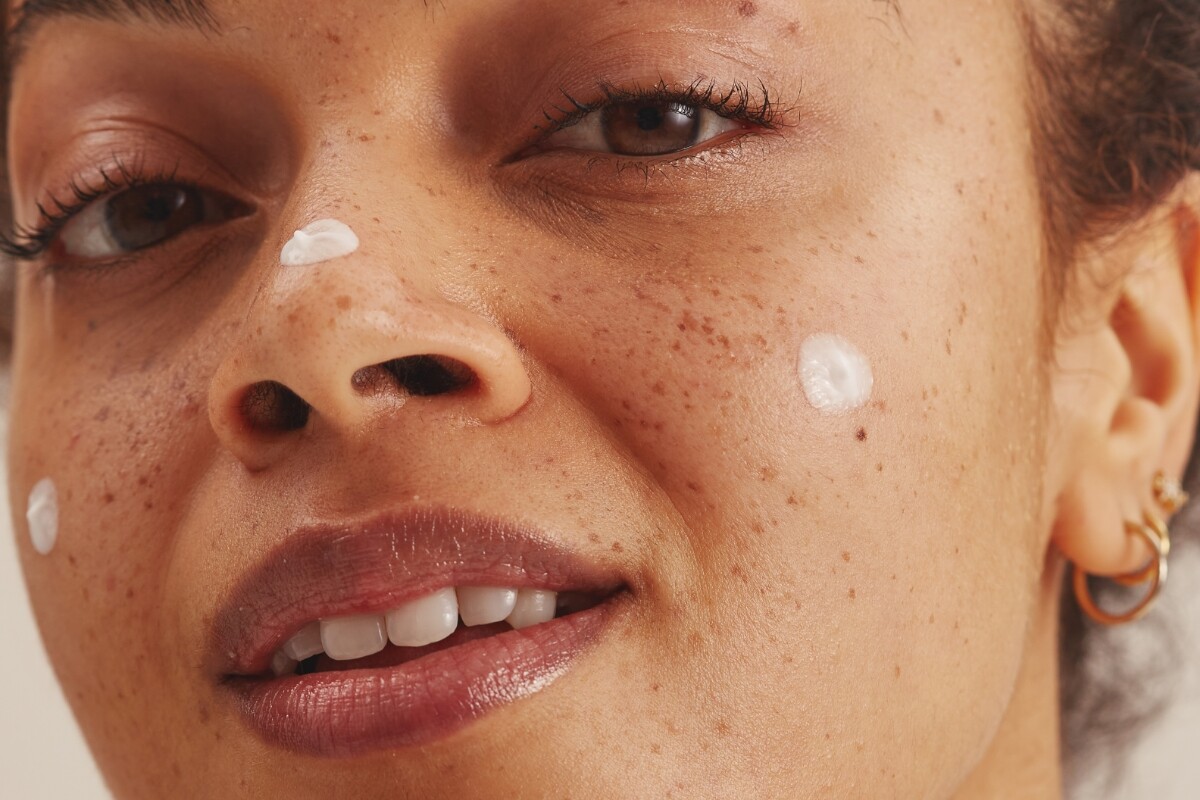Sunscreen protects you from skin cancer, photoageing (which can take the form of lines or hyperpigmentation) and sunburn. But, do you need to apply it during the darker months of autumn, winter and spring? We’re here to show you why in 5 years from now you’ll be so grateful you did.
Staying protected from harmful UV rays
While the sun’s rays may not be as warm in autumn, winter and spring, up to 80% of its UV (ultraviolet) rays can still penetrate through clouds and damage your skin.(1) UV rays can cause premature ageing, skin cancer and worsen hyperpigmentation from old acne scars, melasma and age spots.(2) These are all reasons why using a broad spectrum sunscreen with SPF 30 (or more) every day is so important: Not only to protect the skin, but to minimise the health hazards that sun damage causes over time.(3) If you’re not sure how to choose the right sunscreen for your skin, read this blog to find out the differences between chemical and mineral formulations.
Preventing premature skin ageing
Skin ageing is a natural process that happens to everyone, but UV rays accelerate it through a process called photoageing. This is where unprotected exposure to sunlight breaks down collagen and elastin, which are essential proteins for youthful, firm skin. Because UV can still penetrate through clouds during the winter months, without sunscreen, you may develop fine lines, wrinkles and age spots earlier than someone who applies it every day.(4)
Reducing the risk of skin cancer
Using broad spectrum sunscreen has been shown to reduce the risk of both melanoma and nonmelanoma skin cancers. UVA and UVB rays are different types of ultraviolet radiation that reach the earth. Both contribute to the development of skin cancer, and prolonged UV exposure raises your chances of developing conditions like basal cell carcinoma, squamous cell carcinoma, and the deadliest form, melanoma.(5)
Do you need sunscreen indoors?
Because they have shorter wavelengths, most (but not all) UVB rays are blocked by windows. However, UVA rays – the ones responsible for photoageing and skin cancer – aren’t. Even if you’re working from home, or staying indoors, you should wear sunscreen just to be safe.(6)
How UV changes the efficacy of other skincare products
If you’re using products like retinoids or chemical exfoliants, daily sunscreen is even more important no matter the time of year. Sunlight can render retinoids and their derivatives less effective, and exfoliants like glycolic or salicylic acid can increase your skin’s UV sensitivity.(7)(8) Applying sunscreen daily helps stop retinoids from losing their effectiveness and protects your skin from possible side effects.
Keeping sunscreen in your routine is vital all year round to protect your skin, and it’s especially important if you’re using a Dermatica personalised formula, active ingredients or chemical exfoliants. If you’re a Dermatica subscriber, you can reach out to our experts via your dashboard to answer any questions you have. Plus, you can get even more benefit from your sunscreen by adding Vitamin C 15%: Fresh Batch Ascorbic Acid to your routine. It’s brightening, will prevent loss of firmness and will provide a triple antioxidant defence against UV damage and air pollution.
References
1. Global Solar UV Index [Internet]. www.who.int. Available from: https://www.who.int/publications/i/item/9241590076
2. Rittie L, Fisher GJ. Natural and Sun-Induced Aging of Human Skin. Cold Spring Harbor Perspectives in Medicine. 2015 Jan 1;5(1):a015370–0.
3. Latha MS, Martis J, Shobha V, Sham Shinde R, Bangera S, Krishnankutty B, et al. Sunscreening agents: a review. The Journal of clinical and aesthetic dermatology [Internet]. 2013 [cited 2023 Oct 16];6(1):16–26. Available from: https://www.ncbi.nlm.nih.gov/pmc/articles/PMC3543289/#:~:text=Sunscreens%20with%20an%20SPF%20of
4. Rittie L, Fisher GJ. Natural and Sun-Induced Aging of Human Skin. Cold Spring Harbor Perspectives in Medicine. 2015 Jan 1;5(1):a015370–0.
5. Sander M, Sander M, Burbidge T, Beecker J. The Efficacy and Safety of Sunscreen Use for the Prevention of Skin Cancer. Canadian Medical Association Journal [Internet]. 2020 Dec 13;192(50):E1802–8. Available from: https://www.ncbi.nlm.nih.gov/pmc/articles/PMC7759112/
6. Diffey BL. Is it necessary to wear sunscreen indoors? British Journal of Dermatology. 2022 Dec 1;187(6):1009–10.
7. Venosa A. Is Your Beauty Routine Making You Photosensitive? [Internet]. The Skin Cancer Foundation. 2023 [cited 2023 Oct 16]. Available from: https://www.skincancer.org/blog/when-beauty-products-cause-sun-sensitivity/
8. Kornhauser A, Wei RR, Yamaguchi Y, Coelho SG, Kaidbey K, Barton C, et al. The effects of topically applied glycolic acid and salicylic acid on ultraviolet radiation-induced erythema, DNA damage and sunburn cell formation in human skin. Journal of Dermatological Science. 2009 Jul;55(1):10–7.
Ash Sharma
Dr Ashwin Sharma is a medical doctor and writer with a particular interest in health technology, artificial intelligence and medical weight loss. He completed his training at the University of Leicester and Imperial College London, and has since been exploring the intersections of medicine, technology, and communication.





